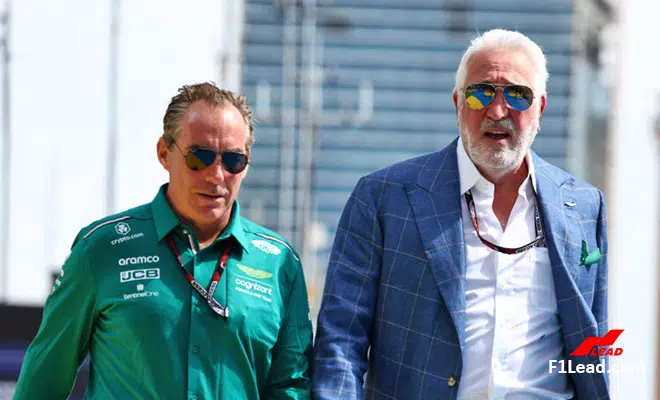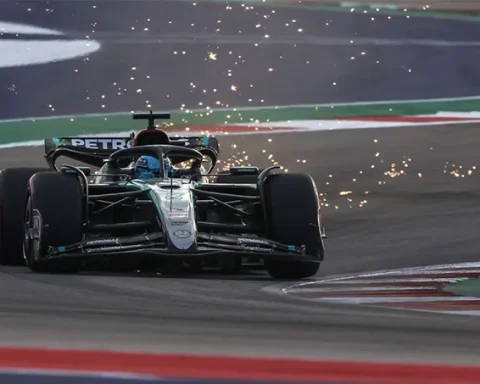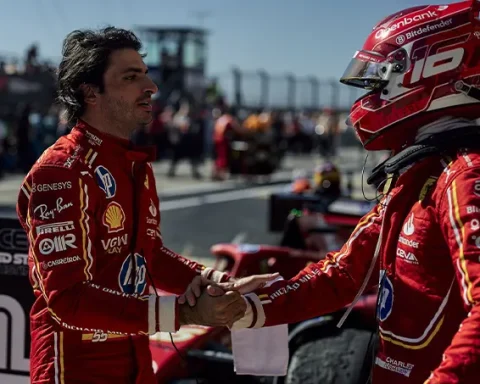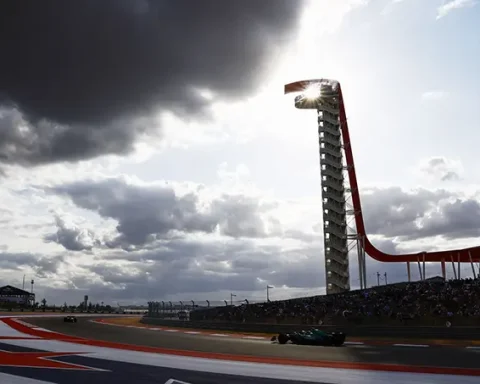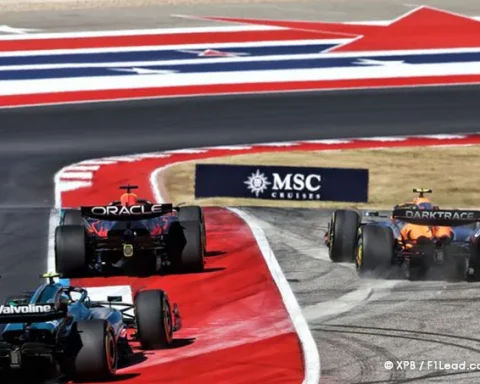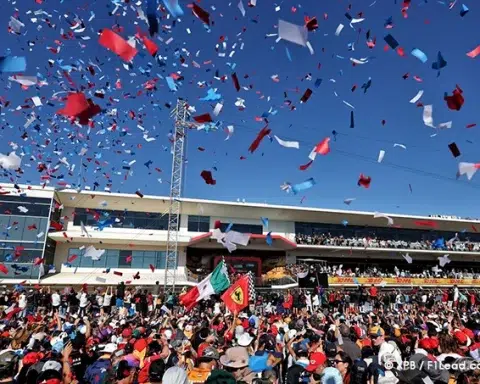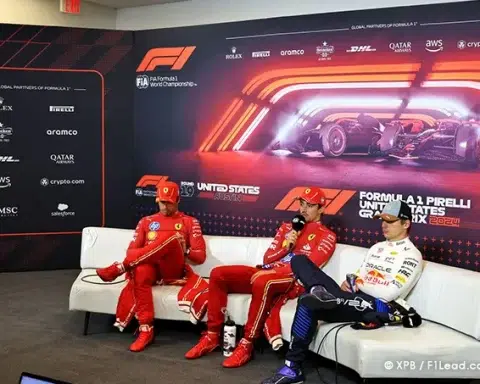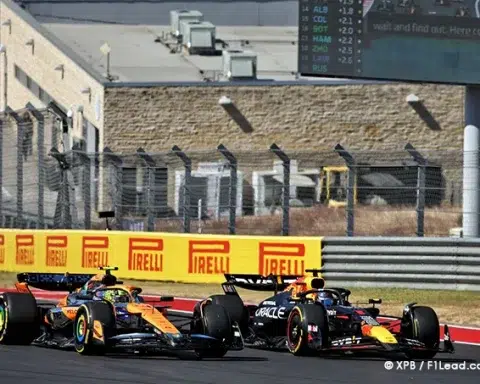Liberty Media’s influence on Formula 1 has sparked debate, balancing business growth against the sport’s traditional identity and fanbase dynamics.
After an initial euphoria, Liberty Media’s involvement in F1 is now facing increasing criticism. Some fans lament the focus on spectacle and business, mourning a loss of the sport’s identity: the increase in city races is a common complaint.
While certain drivers (Max Verstappen) may share this view, it is far from unanimous in the paddock.
Far from it – the current teams, for example, are very pleased with the Americans’ record.
Jefferson Slack, Commercial and Marketing Director at Aston Martin F1, has thus defended Liberty Media’s record in response to these criticisms.
Clearly, yes, Liberty Media has made F1 more American – and that’s a good thing.
“The growth of Formula 1 is truly astonishing. Ten years ago, teams were bought for the nominal price of one dollar. Today, their value is in the billions.”
“With Liberty Media at the helm of the sport, Formula 1 has undergone a tectonic shift in how it operates. A cost cap was introduced to start leveling the playing field; the sport broke into the American market; and there’s more fan engagement.”
“Liberty Media knows what it’s doing and is doing an excellent job leading F1. It introduced a budget cap, opened up the American market, expanded the calendar to 24 races, and guided the sport through the pandemic. It’s done a great job following the model of American leagues.”
“What teams and sports do in the United States is always an inspiration, and I constantly tell our commercial team to look at what they’re doing. It was the same when I was the general manager of Inter Milan in the early 2000s, becoming the first American to lead a major European football team… I applied American business practices to football.”
F1 teams seem as focused on profit as they are on sports, according to some views. Yes, and so what, responds Slack? Isn’t that good for the sport as a whole?
“The notion of profit for an F1 team is still sometimes viewed negatively, when it shouldn’t be. The NFL may have the best business model of any sport, and all team owners profit from it – and some of them make a lot of money. It doesn’t hurt the product. On the contrary, it allows you to think long-term and build a product that works, a product people want to come back to. It’s a virtuous circle.”
Do purists have a reason to be upset?
Doesn’t Aston Martin F1 hear the growing unease among fans, especially purists, for instance, regarding the increase in urban Grand Prix?
“Within the fan community, I can understand that purists might be upset by the new balance between classic circuits and new tracks in the modern F1 calendar, but in terms of economic model, I think everyone should be satisfied.”
“The structural changes made by Liberty make the sport stronger. Teams are no longer at risk of bankruptcy, and the cost cap makes the sport more competitive. Last year, we had one team at the top, far ahead of everyone else, which is not great, but the battle among the next four teams, including Aston Martin, was exceptionally tight, which bodes well for the future.”
“The sport must ensure it continues to engage with fans. It cannot focus on wealthy individuals who frequent the Paddock Club. It needs to address the entire socio-economic spectrum.”
“And we cannot let F1 become a passing fad: it’s F1 this year, but next year it might be padel. We need to work to keep these fans because they have plenty of choices.”
As for Aston Martin F1’s own situation, it is also very positive, concludes Slack.
Aston Martin’s Remarkable F1 Turnaround
It’s worth noting that from both a financial and popularity standpoint, the green team, inheritor of Force India and Racing Point, started from a long way back.
“We started with the smallest fan base of all the teams, and now we have the fifth largest. It’s not because we won the world championship – we haven’t won anything yet – but because we have the right brand associated with the right strategy. Economically, the organization has grown eightfold from what we inherited. I don’t know anyone who has experienced such rapid growth in a team sport.”
“Not all F1 teams have the same motivations. There are teams owned by large corporations and others that are considered purely a marketing platform by their owners. That’s not the case for Aston Martin. Lawrence Stroll, our executive chairman and majority owner, is a wealthy individual – but he’s one person, and our competition includes powerful corporate giants.”
“It’s exciting: we feel like the racing team needs us. It also makes us ambitious: we’re competing with the best teams in the world, which have decades of history in this sport. It’s a certain pressure, but where else would we have the opportunity to achieve something like this?”
Liberty Media F1 Criticism. Liberty Media F1 Criticism
- Ricciardo: Red Bull Aims to Crush Rivals
- Following us on Facebook and Twitter.
